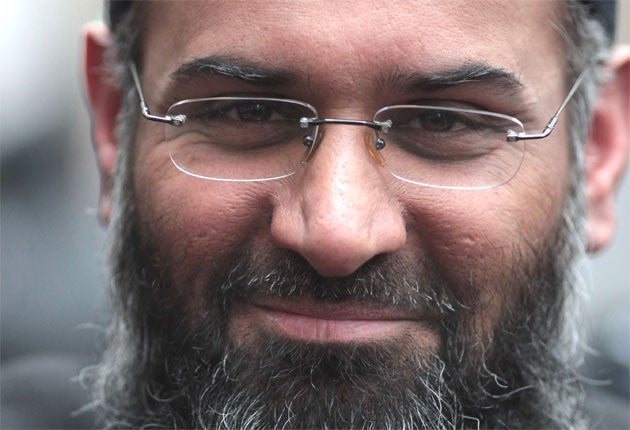Anjem Choudary: Radical preacher has public speaking ban lifted
Extremist was jailed for inviting support for Isis and freed in 2018

Your support helps us to tell the story
From reproductive rights to climate change to Big Tech, The Independent is on the ground when the story is developing. Whether it's investigating the financials of Elon Musk's pro-Trump PAC or producing our latest documentary, 'The A Word', which shines a light on the American women fighting for reproductive rights, we know how important it is to parse out the facts from the messaging.
At such a critical moment in US history, we need reporters on the ground. Your donation allows us to keep sending journalists to speak to both sides of the story.
The Independent is trusted by Americans across the entire political spectrum. And unlike many other quality news outlets, we choose not to lock Americans out of our reporting and analysis with paywalls. We believe quality journalism should be available to everyone, paid for by those who can afford it.
Your support makes all the difference.A ban on radical preacher Anjem Choudary speaking in public is being lifted as licence conditions which were imposed after his release from prison come to an end.
The extremist was jailed five years ago after being convicted of inviting support for the Islamic State terror group, and he left Belmarsh high-security jail on licence in 2018.
Choudary, from Ilford in east London, was freed automatically half-way through a five-and-a-half year sentence.
A string of more than 20 strict licence conditions which Choudary has been subject to since his release will expire on Sunday, the PA news agency understands.
As well as being prohibited from speaking in public, his internet and mobile phone use was restricted and he was banned from being in contact with people who may be suspected of extremist-related offences without prior approval.
He had to wear an electronic tag and abide by a night-time curfew, only attend pre-approved mosques and stay within a set area, as well as adhere to other standard requirements, like having regular meetings with probation officers.
Police and MI5 were thought to be among a host of bodies involved in monitoring him under the system known as multi-agency public protection arrangements (Mappa).
Separate measures saw his name added to a UN sanctions list, which meant he was banned from travelling and had assets frozen.
Once a leading figure in the now-banned group al-Muhajiroun (ALM), the former solicitor had previously stayed on the right side of the law for years - despite being seen as a radicalising influence.
From the 1990s, the father-of-five was a prominent figure in ALM, which also operated under a number of other names.
Over 20 years he voiced controversial views on Sharia law while building up a following of thousands through social media, demonstrations and lectures around the world.
While there has been no suggestion Choudary organised any attacks, others previously linked to ALM include Michael Adebolajo, one of the murderers of Fusilier Lee Rigby, and Khuram Butt, the ringleader of the London Bridge terror attack.
During his teenage years the Fishmongers’ Hall attacker Usman Khan also took an interest in Choudary’s views.
Muslim convert Lewis Ludlow, who plotted a terror attack on Oxford Street, attended a demonstration led by Choudary and the ALM group.
But former head of counter-terror policing Mark Rowley previously said Choudary was not "some sort of evil genius", dismissing him as a "pathetic groomer" during an interview with BBC Radio 4’s Today programme.
"I think we have to be careful not to overstate his significance," he added.
Whether counter-terror police and MI5 will continue to track Choudary or consider him a person of interest has not been confirmed. But ALM is expected to remain of considerable interest.
Other measures available to security services and police which could be considered in such instances are Tpims (Terrorism Prevention and Investigation Measures). They are seen as the strictest monitoring tool available to use against people suspected to be involved in terrorism or who present a threat, but cannot be prosecuted or deported.
A Tpim notice - which can be in place for up to two years - can involve conditions like an enforced curfew, tagging, having to stay away from certain locations and restrictions on overseas travel.
A senior security source told PA: "Disruptive measures - including jail terms and licence conditions - have had a substantial impact on the ability of ALM to propagate their toxic ideology.
"While the group cynically preys on vulnerable individuals, its spokespeople have hidden behind their cult-like status while encouraging others to commit acts of violence. The group breeds on propaganda, and should be starved of the oxygen of publicity it relies on to spread hatred."
Press Association
Join our commenting forum
Join thought-provoking conversations, follow other Independent readers and see their replies
Comments